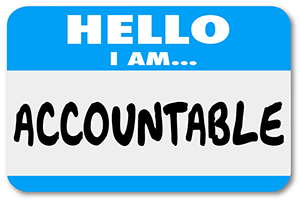At one point or another, all leaders will have to deliver bad news. From benefits changes to layoffs and project cancellations, disappointing news is occasionally necessary. Planning effectively for delivering the information in a strategic yet empathetic way is essential for maintaining strong relationships and engagement with employees throughout the change process.
Coworkers: The Family You Choose?
Most adults spend 90,000 hours of their lives at work, so it’s natural that we want to feel deeply connected to the individuals we work alongside all day. Employees who feel emotionally connected with one another report they are not only happier at work, but also more engaged and creative. In fact, employees who work with their best friend are 7 times more likely to be fully engaged at work. With such key business outcomes on the line, naturally many organizations aspire to a family-like culture where employees feel deeply connected and comfortable with one another. From picnics to softball … Read More
Seven Universal Soft Skills Everyone Should Master–Flashback Friday
A 256% net return on investment—it’s the holy grail of training outcomes and easier to achieve than you might think. A study conducted by Boston College, Harvard University, and the University of Michigan found that soft skills training does NOT create soft results. The study showed that even minimal time investments in each skill (5-12 hours) boosts productivity and retention 12 percent and those results last up to 9 months.
Radical Idea: Delayed Exit Interviews
When talented, high performing team members leave the organization, everyone from peers through leadership likely feels a sense of loss and disappointment. Often, once a resignation has been announced, everyone quickly assembles to identify and close whatever knowledge gaps will be created in the wake of the departure. This survival-mode mentality is understandable, yet short-sighted. That departing employee holds far more valuable information than just how they functioned in their role. They also hold the secret to how you can retain the rest of your staff.
Reverse Mentoring in a Multi-Generational Workforce
While there is a contentious debate among researchers, experts, and managers alike regarding the fundamental motivational drivers and values-based differences between generations, one conclusion is undeniable. With four (if not five) generations working together in organizations, the differences in experience, skills, and use of tech are striking. The oldest workers employed today are from the tail-end of the Silent Generation (born between 1925-1946). Having felt the immediate effects of the Great Depression and spending 50+ years in the workforce, they’ve seen a thing or two during their careers and they leverage those experiences to inform their decision-making. Next, the Baby … Read More
Strategies for Building Accountability
In a recent online poll, leaders reported that the number one change they’d like to see in their corporate culture is a stronger commitment to accountability. Accountability takes many different forms across organizations. In many cases, accountability is only referenced in the form of performance failures and mistakes. In this context, accountability is often characterized as being willing to “fall on your sword” and admit your part in where things went wrong. This is a short-sighted and negative interpretation of accountability that is unlikely to create a positive change in an organization’s culture. At its best, accountability is a personal … Read More






